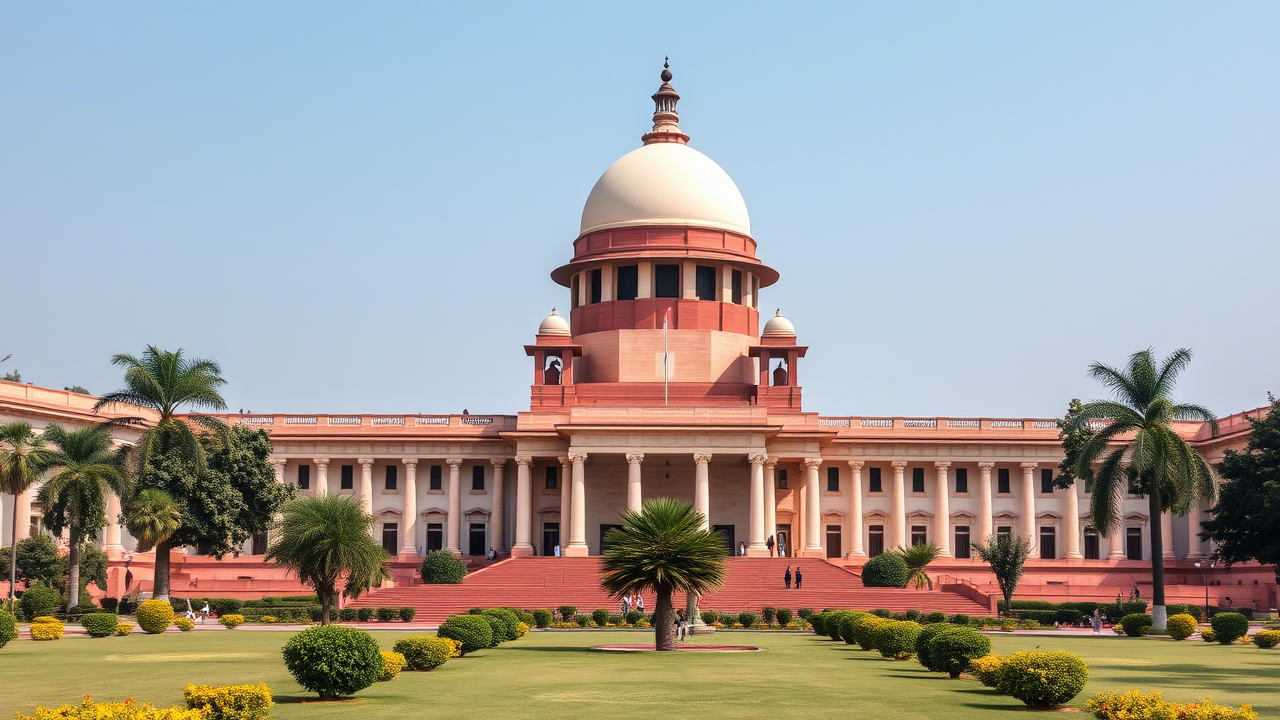Jamiat Ulema President Moves Supreme Court Against Waqf Amendment Act, Seeks Interim Relief
Maulana Arshad Madani, President of the Jamiat Ulema-i-Hind, has approached the Supreme Court challenging the constitutional validity of the Waqf (Amendment) Act, 2025, which received Presidential assent yesterday. The petition, filed through Advocate Fuzail Ahmad Ayyubi, seeks an interim stay on the implementation of the Act by deferring its notification under Section 1(2).

The plea raises serious objections to multiple provisions of the amendment, arguing they are unconstitutional and detrimental to the established waqf system in India. Of particular concern is the removal of the concept of “waqf by user”—a customary principle upheld in Indian waqf jurisprudence and previously recognized by the Supreme Court in the Ramjanmabhumi-Babri Masjid judgment. The petition asserts this change threatens the existence of numerous waqf properties that lack formal deeds, particularly those established by oral dedication or customary use.
Further, the amendment’s introduction of Sections 3D and 3E—excluding waqf claims over ASI-protected monuments and prohibiting waqf creation over Scheduled Tribe properties—is challenged as discriminatory and violative of constitutional protections.
The petition also contests the reconstitution of the Central and State Waqf Boards, stating that the dilution of the Muslim-majority composition and the removal of the requirement for the CEO to be Muslim interferes with the community’s fundamental right to manage its religious affairs and institutions.
The plea emphasizes the urgency of the matter, arguing that once the law is notified, irreversible harm could be done to numerous waqf institutions, especially historical mosques and graveyards lacking official records.
- Abolition of "Waqf by User": The long-standing principle recognizing waqf through continued religious usage has been removed. This undermines oral dedications and institutions like mosques and graveyards that lack formal documents.
- New Sections 3D and 3E: These prevent waqf claims on ASI-protected monuments and prohibit the creation of waqfs on properties owned by Scheduled Tribes—raising questions of discrimination and exclusion.
- Changes in Waqf Board Composition: The petition argues that reducing Muslim representation and removing the requirement for Muslim CEOs is a violation of the religious community’s autonomy in managing its institutions.
The Supreme Court is yet to list the matter for urgent hearing.

